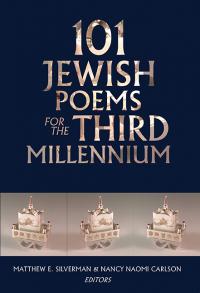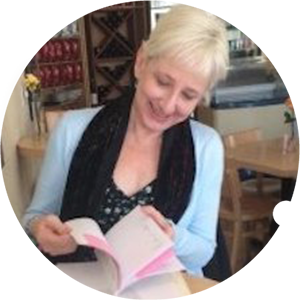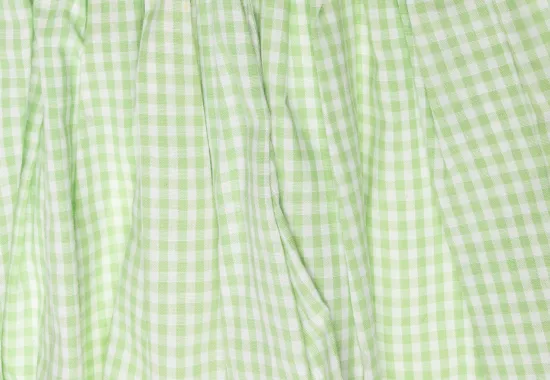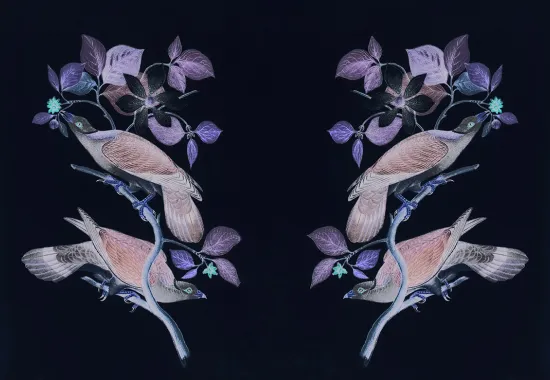Infinity Plus One: A Review of 101 Jewish Poems for the Third Millennium
Like the Psalms of David, 101 Jewish Poems for the Third Millennium, edited by Matthew E. Silverman and Nancy Naomi Carlson, is not a collection to be read beginning to end in one sitting. Instead, these poems are best savored, one at a time, perhaps randomly. The organization of the collection defies simplistic classification and division. These poems are arranged in alphabetical order according to authors’ last names. I came to this collection of poems published by the Ashland Poetry Press with one question: What does it mean to be Jewish? I abandon the collection with a more general question: What does it mean to be human?
 You might begin, as I did, with Jane Yolen’s poem, “Shoes: Holocaust Museum, Washington D.C.” I am not Jewish myself, and I wanted to start with something familiar. Jane Yolen, I knew I could trust. Long ago, I read many of her picture books to my children, and I admire her work on fairy tales. Her poem, here, is also familiar. It’s a meditation on the difference in knowledge residing in our heads and knowledge residing in our hearts, or bodies:
You might begin, as I did, with Jane Yolen’s poem, “Shoes: Holocaust Museum, Washington D.C.” I am not Jewish myself, and I wanted to start with something familiar. Jane Yolen, I knew I could trust. Long ago, I read many of her picture books to my children, and I admire her work on fairy tales. Her poem, here, is also familiar. It’s a meditation on the difference in knowledge residing in our heads and knowledge residing in our hearts, or bodies:
I walk with foreknowledge into the museum,
sure it has nothing to teach me . . . .
So why now, standing by a pyramid of shoes,
from a liberated camp,
am I stunned, undone, incapable of moving on?
Is it the sheer number of shoes in the pile
or the one on the top exactly the size
of my granddaughter’s foot?
You might turn next to “The Whole Imperfect Lot of Us,” by Yvette Neisser, which begins:
You must change your life,
say the rabis of old.
Shine a mirror inside yourselves,
examine your flaws.
Scrub the soul clean.
And continues:
As we sit in silence,
one boy cannot control his voice.
Now and then he lets out a howl
shaking us out of contemplation.
Bless him for digging deep.
Bless us all, the whole imperfect lot of us—
Again, quite familiar.
There is much death in this collection. You might find yourself next reading “The Laptop Also Is Dying,” by Alicia Ostriker, a poem that uses distancing as a method of coping:
First she became unable to remember where
things were, then every gesture and motion slowed
and sometimes had to be restarted
while a strange rainbow wheel endlessly whirled on the screen.
I leave this poem wondering: Who is among the also who is dying? And then I think: All of us. So naturally I turn, as you might, to “Shiva,” by Melanie H. D. Sirof, which is an absolutely beautiful poem. It is particularly Jewish, with its seven numbered sections—suggesting seven nights of sitting Shiva, yet also universal:
1.
Someone must return to the house first.
Someone must boil the egg
and place the water on the porch,
cover the mirrors
and unwrap the fish.
Someone must prepare the house
for absence.
For a bit of a break, we might turn to “The Price of Lilith’s Freedom,” by Erika Dreifus. I love this poem. It is dramatic, clear, assertive, positive, and unique. How often do we hear the voice of Lilith? Here it is:
The deal was this:
liberation from our unequal coupling
and the ability to spring free from his authority.
In exchange, he gets the house,
where, in time, he’ll live with another
and raise a family.
The rest of this poem is even more delicious.
In addition to the voice of Lilith, we hear voices in other languages, translated of course. We have translations in this collection from Hebrew, Russian, and Spanish. We also hear terms in the Glossary at the end of the collection in Hebrew, Yiddish, French, German, Spanish, and Russian. Language itself is a central concern in this collection. These are poets, after all. Let us turn finally to “I Dream I understand My Great-Grandmother’s Yiddish,” by Michele Bombardier:
What is heaviness
but the weight of fear,
the sound of advancing hooves,
the noose of the village circled . . .
Listen.
They are coming.
Makht zikh greyt tzu antloyfn:
Get ready to run.
Again, and again, I return to the title of this collection: 101 Jewish Poems for the Third Millennium. I cannot help but think of that timeless collection of stories with which most of us are, at least somewhat, familiar: 1001 Nights. In that title, 1001 refers to infinity plus one. I cannot help but apply that notion of infinity to this smaller collection of 101 poems.
Recommended
The Shirt
After Hearing David Rothenberg Sang with Birds
Frothing Pink Poodle Droppings






